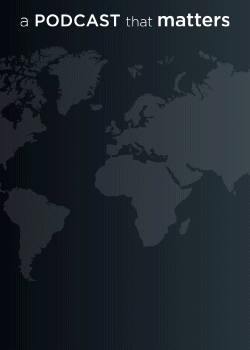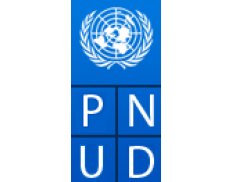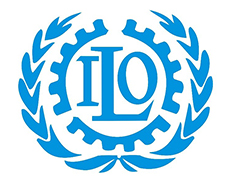Details
Description
Background
UNDP Sri Lanka’s Flagship Portfolio on SDG16, Peace, Justice and Strong Institutions brings together inclusive governance and peacebuilding work under one umbrella. The Portfolio is implemented by UNDP as part of its Country Programme and the United Nations Sustainable Development Framework and enables the provision of cohesive and integrated support to Sri Lanka.
Under this portfolio, UNDP in partnership with the United Nations Children’s Fund (UNICEF) have launched a comprehensive Justice Reforms Programme (Programme) supported by the European Union. The Programme contains a holistic package of support to the justice sector in Sri Lanka and is being implemented in close consultation and partnership with key justice sector institutions including the Judicial Service Commission, Ministry of Justice, Attorney General’s Department and Legal Aid Commission of Sri Lanka.
The JURE Programme takes a three-pronged approach to building a modern, efficient and inclusive justice sector which includes improving access to Justice, improving accountability and transparency and improving efficiency and quality. The JURE Programme is designed to be catalytic to improving access to justice, provides a platform for bringing together stakeholders including sectoral state institutions, independent commissions, professional bodies, academic institutions, and civil society into supporting a national effort for justice sector reform.
Background to the initiative
In many foreign jurisdictions, a vibrant public defender mechanism (‘PDM’) is considered as an important aspect of a robust and well-functioning justice system. PDMs is implemented in criminal trials where indigent defendants are assigned public defenders. The PDM goes hand in hand with the right to counsel and the right to a fair trial. Especially in an adversarial system where it is the duty of the counsel to introduce the court to both sides of the case, the court relies on the assistance of counsel. The stronger the PDM, the better protected individual defendants would be against miscarriages of justice. It would also contribute to smoother litigation processes where courts are able to get to the root of cases faster, deduce evidence with less hardship and discharge them more efficiently, which would ultimately bring greater legitimacy to the justice system.
PDM is a new concept to Sri Lanka and therefore there is a need for more research in this area to understand how it could be beneficial to the defendants in Sri Lankan justice system. Currently in Sri Lanka what is in operation is usually legal aid or assigned counsel for persons with lower or no financial means.
This assignment has been designed to analyze PDM system in other countries (for example, UK and EU countries) which could potentially provide learnings for Sri Lanka in improving fair trial rights of citizens.
SCOPE AND OBJECTIVES
Comparative Study on the Public Defender Mechanisms in Other Jurisdictions
The objectives of the study are as follows:
To identify jurisdictions which enjoy vibrant public defender mechanisms and the changes amongst these mechanisms (if any)
To identify the best characteristics of public defender mechanisms in these countries
To identify the level of compliance with said standards, the pros and cons in these systems
To identify the lessons that can be learnt from aforementioned jurisdictions for the Sri Lankan system and how they may be adapted and implemented within the justice system of Sri Lanka
The scope of the study would include thorough and well-documented research of how the PDM is put into practice in various foreign jurisdictions. The Individual Consultant (IC) is expected to identify the different types of public defender systems that jurisdictions have employed.
The study is expected to include the question as to whether the implementation of a PDM is appropriate for a country such as Sri Lanka. This should focus at a minimum, the considerations below:
Legal framework within which the PDM operates
Quality of representation
Financial capacity (including method of funding)
Institutional capacity
Its impact on other aspects of the justice system,
Public demand for the service
When choosing which jurisdictions, apart from the level of robustness of the PDMs, the IC must give due attention to whether the jurisdictions could provide analogical leanings for Sri Lanka (given the differences that may exist between justice systems).
Duties and Responsibilities
EXPECTED OUTPUTS AND DELIVERABLES
No.
Deliverables/outputs
Due date
Schedule of payments
01.
Inception report with the details on the methodological approach to the study and the tentative list of the jurisdictions
10th August
40% of lump sum
02.
Draft report of the findings
20th September
40% of lump sum
03.
Final report with UNDP input incorporated and the summary of the final report
20th October
20% of lump sum
Management Arrangements
The Consultant will directly work with and report to the Senior Technical Specialist, JURE Programme, UNDP.
TIMEFRAME
The assignment should be completed within three months.
Competencies
The prospective consultant should have the following competencies and qualifications.
Technical competency
Consultant should possess the abilities, skills, and experience appropriate to undertake the tasks proposed.
Respect for people: Consultant should respect the security, dignity and self-worth of respondents and program participants. Consultant has the responsibility to be sensitive to and respect differences amongst participants in culture, religion, gender, disability, age, and ethnicity.
Behavioural Competencies
Ability to be flexible and respond to changes to text/layout as part of the review and feedback process.
Strong interpersonal skills, able to communicate and work with diverse people.
Participate effectively in a team-based, information-sharing environment, collaborating and cooperating with others.
Results
Proven delivery of high-quality results, in a timely manner.
Ability to plan own work and use time efficiently, manage conflicting priorities and work under pressure of tight and conflicting deadlines.
Required Skills and Experience
Academic
Attorney-at-Law with a Master’s degree in law and seven years of progressively responsible work experience in the justice sector.
OR
Attorney-at-Law with a bachelor’s degree in law and ten years of progressively responsible work experience in the justice sector.
Experience
At least 5 years professional experience in practicing law or working in the justice sector
Strong experience in conducting evidence-based research and report writing
Demonstrated experience in working with government partners and other stakeholders in public sector development programs
Special skills
Fluency in Sinhala/Tamil and English and understanding in disability & gender mainstreaming
election of an Individual Consultant: Evaluation Method and Criteria
Cumulative analysis
The award of the contract shall be made to the individual consultant whose offer has been evaluated and determined as a) responsive/compliant/acceptable; and b) having received the highest score out of set of weighted technical criteria (70%). and financial criteria (30%). Financial score shall be computed as a ratio of the proposal being evaluated and the lowest priced proposal received by UNDP for the assignment.
Technical Criteria for Evaluation (Maximum 700 points)
Overall technical evaluation criteria:
Summary of Technical Proposal
Maximum Total Points
Part 1: Relevance of education
250
Part2: Relevance of experience (additional points for demonstrated experience in conducting similar studies and analyses)
350
Part 3: Special skills ( i.e. language, gender/ understanding in disability and gender mainstreaming)
100
Total
700
Details of evaluation criteria and marking scheme:
Part 1: Relevance of education:
Criteria
Maximum Points
1.1
Attorney-at-Law with a Master’s degree in law and seven years of progressively responsible work experience in the justice sector.
OR
Attorney-at-Law with a Bachelor’s degree in law and ten years of progressively responsible work experience in the justice sector
250
Part 2: Relevance of experience in area of specialization:
No
Criteria
Maximum Points
2.1
At least 5 years of professional experience in practicing law or working in the justice sector
150
2.2.
Strong experience in conducting evidence-based research and report writing
100
2.3
Demonstrated experience in working with government partners and other stakeholders in public sector development programs
100
Part 3: Special skills
No
Criteria
Maximum Points
3.1
Written and working language skills in Sinhala and/or Tamil & English and understanding in disability & Gender mainstreaming
100






